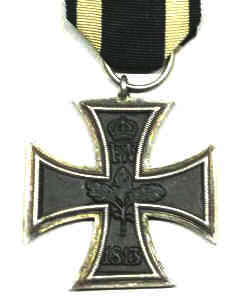Military history of Germany
Military history of Germany covers the historical aspects of the armed forces of Germany from its origins in the early Middle Ages to the present day. The history of the German military is complex, reflecting the nation's changes in territory and political leadership over the centuries. It encompasses the military actions of various German states, including Prussia and Bavaria, before the unification of Germany in 1871, as well as the military endeavors of the unified German Empire, the Weimar Republic, Nazi Germany, East Germany, and the modern Federal Republic of Germany.
Early History[edit | edit source]
The military history of Germany can be traced back to the tribal societies of the Germanic peoples. During the Roman Empire, these tribes were known for their fierce warriors and tactics that often challenged Roman legions. The most notable event in this era was the Battle of the Teutoburg Forest in 9 AD, where Germanic tribes led by Arminius defeated three Roman legions.
Middle Ages[edit | edit source]
During the Middle Ages, the Holy Roman Empire emerged as a loose confederation of German states. The military might of the empire was often demonstrated in conflicts such as the Crusades and during various internal and external wars. The Teutonic Knights, a military order, played a significant role in expanding and defending German territories in the Baltic region.
Early Modern Period[edit | edit source]
The early modern period saw the rise of Prussia as a major military power under the leadership of the Hohenzollern dynasty. The Thirty Years' War (1618–1648) devastated much of the Holy Roman Empire, leading to significant changes in the balance of power in Europe. Prussia's military reforms and strategies under kings such as Frederick the Great further established its reputation as a formidable force.
19th Century and Unification[edit | edit source]
The 19th century was marked by the Napoleonic Wars, in which various German states fought against and alongside Napoleon's France. The aftermath of these wars and the dissolution of the Holy Roman Empire paved the way for the unification of Germany under Prussian leadership. The Franco-Prussian War (1870–1871) culminated in the proclamation of the German Empire in 1871, establishing Germany as a major European power.
World War I[edit | edit source]
Germany's military history in the 20th century is dominated by both World Wars. In World War I, Germany, as part of the Central Powers, faced the Allies. Despite initial successes, the war ended in 1918 with Germany's defeat and the imposition of harsh penalties by the Treaty of Versailles.
Interwar Period[edit | edit source]
The interwar period saw the rise of the Weimar Republic and the reorganization of the German military under the constraints of the Treaty of Versailles. This period was marked by economic hardship, political instability, and the rise of extremist movements, including the Nazi Party.
World War II[edit | edit source]
Under Adolf Hitler, Nazi Germany embarked on a path of aggressive territorial expansion, leading to World War II. The German military, known as the Wehrmacht, utilized blitzkrieg tactics to achieve rapid victories in the early years of the war. However, sustained resistance from the Allies and the opening of multiple fronts led to Germany's defeat in 1945.
Cold War[edit | edit source]
After World War II, Germany was divided into East and West Germany, aligning with the Soviet Union and the Western Allies, respectively. Both German states reestablished their armed forces: the Bundeswehr in West Germany and the Nationale Volksarmee in East Germany. The military history during this period is marked by the Cold War and Germany's role in NATO and the Warsaw Pact.
Reunification to Present[edit | edit source]
The reunification of Germany in 1990 merged the military forces of East and West Germany into the Bundeswehr of the Federal Republic of Germany. Since then, Germany has participated in various peacekeeping missions and has been involved in the fight against terrorism.
Search WikiMD
Ad.Tired of being Overweight? Try W8MD's physician weight loss program.
Semaglutide (Ozempic / Wegovy and Tirzepatide (Mounjaro / Zepbound) available.
Advertise on WikiMD
|
WikiMD's Wellness Encyclopedia |
| Let Food Be Thy Medicine Medicine Thy Food - Hippocrates |
Translate this page: - East Asian
中文,
日本,
한국어,
South Asian
हिन्दी,
தமிழ்,
తెలుగు,
Urdu,
ಕನ್ನಡ,
Southeast Asian
Indonesian,
Vietnamese,
Thai,
မြန်မာဘာသာ,
বাংলা
European
español,
Deutsch,
français,
Greek,
português do Brasil,
polski,
română,
русский,
Nederlands,
norsk,
svenska,
suomi,
Italian
Middle Eastern & African
عربى,
Turkish,
Persian,
Hebrew,
Afrikaans,
isiZulu,
Kiswahili,
Other
Bulgarian,
Hungarian,
Czech,
Swedish,
മലയാളം,
मराठी,
ਪੰਜਾਬੀ,
ગુજરાતી,
Portuguese,
Ukrainian
Medical Disclaimer: WikiMD is not a substitute for professional medical advice. The information on WikiMD is provided as an information resource only, may be incorrect, outdated or misleading, and is not to be used or relied on for any diagnostic or treatment purposes. Please consult your health care provider before making any healthcare decisions or for guidance about a specific medical condition. WikiMD expressly disclaims responsibility, and shall have no liability, for any damages, loss, injury, or liability whatsoever suffered as a result of your reliance on the information contained in this site. By visiting this site you agree to the foregoing terms and conditions, which may from time to time be changed or supplemented by WikiMD. If you do not agree to the foregoing terms and conditions, you should not enter or use this site. See full disclaimer.
Credits:Most images are courtesy of Wikimedia commons, and templates, categories Wikipedia, licensed under CC BY SA or similar.
Contributors: Prab R. Tumpati, MD





